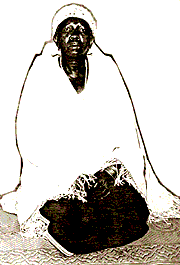 LOVEDU
LOVEDU
The country originated from Dzugudini, a grand-daughter of "the
famous ruler Monomatapa." Her father was angry that she bore a child out of
wedlock. Oral tradition says her mother taught her the art of rain-making and
gave her rain charms and sacred beads. Then she fled south with some supporters.
They settled peacefully among the Sotho.
In the early 1800s, a leadership crisis was resolved by accession
of the first Mujaji, a Rain Queen with both political and ceremonial power.
Chiefs presented her with wives. She had no military, but even the Zulu king
Shaka paid her tribute because of her rain power. Her successors have less authority,
but still preside over womanhood initiations and other important rituals.
SWAZI
The queen is called by honorific titles such as "Mother of
the Country" and Indlovukati, "Lady Elephant." She is a powerful rain maker,
guardian of the royal clan's sacred objects, and addresses the ancestors on
behalf of the Swazi nation. She has the power to give sanctuary to persons
condemned by the king's court. Her village is the capital of the country,
where troops are quartered.
HAUSA
Many powerful queens are remembered in Hausa tradition. Among
the Kotoko, the Gumsu was the female heir of the land, associated with the
morning star, mother of all stars. She lived in the southern part of the palace
and performed functions associated with the south, was the head of the country's
women and played a leading part in the seven year rites for its welfare. The
Kotoko government was based on delicate balance of male/female, right/left,
north/south.
Among the Kanuri, the Gumsu retained her authority in Muslim
times. Diwan records recount that the Gumsu Fasama became angry at her son,
Sultan Biri ibn Dunama, for executing a thief, rather than cutting off his
hands as the Koran decreed. "Accordingly his mother put Biri in prison, and
he submitted to the punishment for a whole year."
 LOVEDU
LOVEDU LOVEDU
LOVEDU